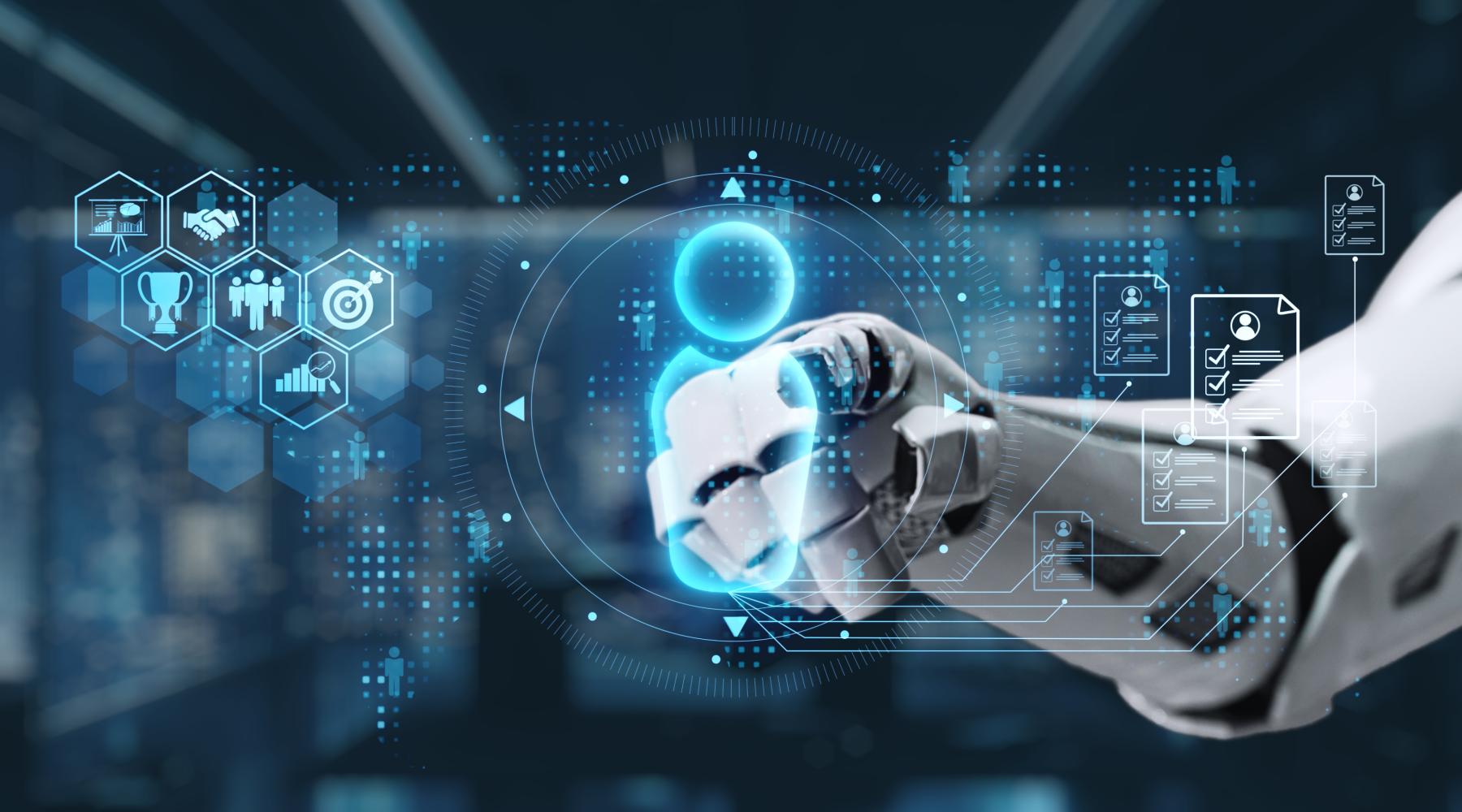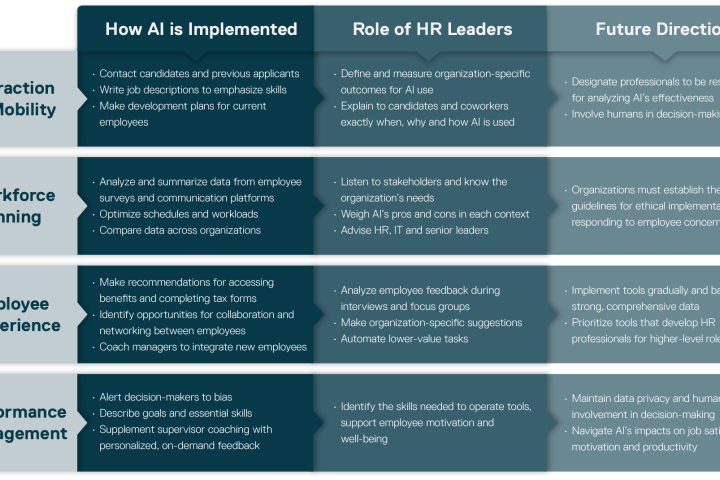
JR Keller Explainer: Will AI Replace HR?
Over the last year, Human Resource teams have come under intense pressure to automate and reduce headcount with artificial intelligence (AI). As companies increasingly turn to AI, they are finding new ways to enhance functions such as talent acquisition, onboarding, employee engagement and performance management. However, as AI use grows, so do the potential risks around issues concerning bias, discrimination and transparency.
Associate Professor JR Keller, who also directs ILR’s Executive Master’s in Human Resources Management program, addresses this seismic shift and the next steps as companies adapt for the future.
Question: Is AI going to replace HR?
JR Keller: Things are going to change for sure. I think many of the things that people tend hate about HR are going to be automated. That is what IBM is doing, they're getting rid of the stuff that is super repetitive, and very transactional. And so there will be fewer people who fall under the HR umbrella, but those that do will have much more interesting and impactful jobs.
Question: Are there risks for companies who rush to downsize their HR teams too quickly?
JR Keller: There are, and companies need to be really thoughtful how they do it. These are new technologies for one, but there's also the possibility of negative consequences not just for the employees being eliminated, but also the employees that the HR staffers were responsible for. How would downsizing affect their employee experience?
Along with that, many times the biggest customer of HR is actually managers. So, if they don't have the right technology in place, or the right people in place to ask the right questions, then things could very easily go wrong.
Question: And what might that look like specifically?
JR Keller: I think the risk is that it could create a ton of confusion among managers and employees, that ultimately ends up creating more problems. For instance, basic functions like pay raises, and paid time off, and benefits, and things that we don't think of as being very difficult, but are still really important to people's everyday experiences. If those things get screwed up, or people have questions about how it’s working, then that can wash through the whole organization, to the point where it feels like a place that's not well-run as a business, or people become skeptical about whether they want to stick around as an employee.
Question: What are some examples of tasks that could be candidates for AI automation?
JR Keller: So, the biggest things that you can automate are questions around different policies. So, what's our PTO policy? Or, for managers things like, what is our policy for raises? How do I do performance reviews?, etc. So, when you have a set of rules as an organization, being able to just ask a chatbot that answer, and having it come immediately, rather than having to send an email and wait for a response, that is a place where automation could be very helpful.
Again, IBM has already done a lot of work on automating salary increases and salary recommendations and coming up with formulas. And so, that is an area were taking the manager out to some extent makes things a little bit more objective, because you're removing some of that potential bias and subjectivity. I think a lot of companies are worried about automating the compensation piece, but at least having that decision informed by AI analysis running in the background can be very helpful.
Question: And what about the tasks that is less easy to automate?
JR Keller: I think a space where companies are getting some pushback are around things like automating performance reviews, or career development and learning. There are some great tools that can pull information from sales records, comments from customers, and all of an employee’s digital traces, to help the manager pull all of that information together. But, you also run the risk of employees starting to feel like, “what am I working here if my manager isn’t actually putting in any time or effort into my performance review? How much do they care about me?”
So, I think that's one area where there are a lot of vendors out there promising solutions, and I think it's a really interesting topic. But, for those of us who are used to having actual people give us performance reviews, to have that suddenly turned over to an AI-informed process feels weird and wrong. But, maybe this will just be one of those things people get used to.
Question: What are the ethical considerations yet to be hammered out?
JR Keller: I think one of the big issues to sort out is where will all of that employee data live and who will have access to it? Most organizations who are using some sort of AI aren’t just uploading that data to an external source like ChatGPT. Personnel data is often restricted to a limited number of people within the HR function. So, what happens if you start throwing that data into the internal AI system? Who is that information actually getting shared with? Even within the organization, there are real concerns over who should have access to different data, and what safeguards need to be in place.
And then another big question is, what do you tell employees? For example, do you tell them if you're using AI, or some kind of formula to determine pay increases? And if so, are you explaining what that formula is and who is involved in that process? I don't know if you necessarily need to tell employees exactly how the sausage gets made, because you also don't want people trying to game the system. However, letting them know the extent to which the process is a human or technology informed is something to consider carefully.
Question: What impact could AI have on the labor force?
JR Keller: I think AI has enormous implications for college graduates entering the job market. For example, graduates who are pursuing majors in things like computer science, or consulting, or investment banking are seeing a lot of entry-level jobs drying up because they're being replaced by technology. In the short term, that can be a real cost savings for organizations, and I understand why they'd want to do it. But, it also poses a real existential question of—how are you going to find your next generation of leaders if all the entry-level jobs are gone?’
Where are people going to learn how to do their second job, if they never get that first one? And who is going to be responsible for that if it's not companies? And so, I think that is a huge question that organizations are going to have to face. I think in the short term, they're just going to get rid of as many jobs as they can. But, in the long term I think that could be something that ultimately costs companies as well.



